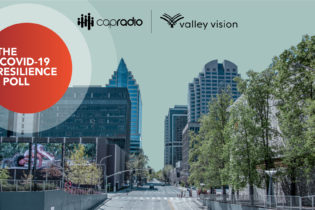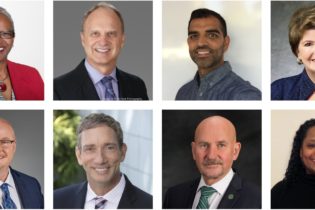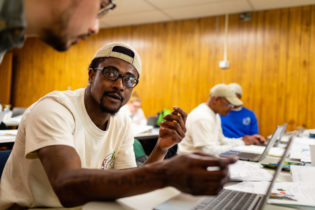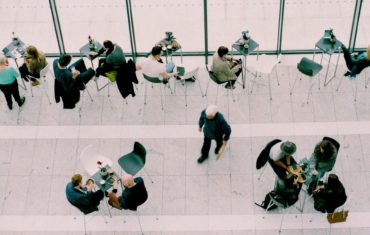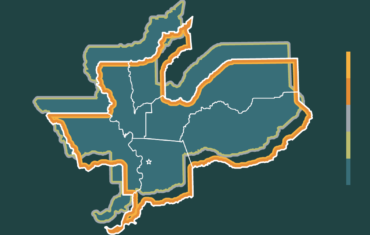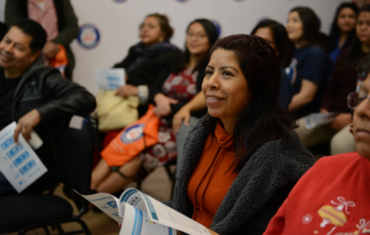The COVID-19 Resilience Poll #2 (October 2020)
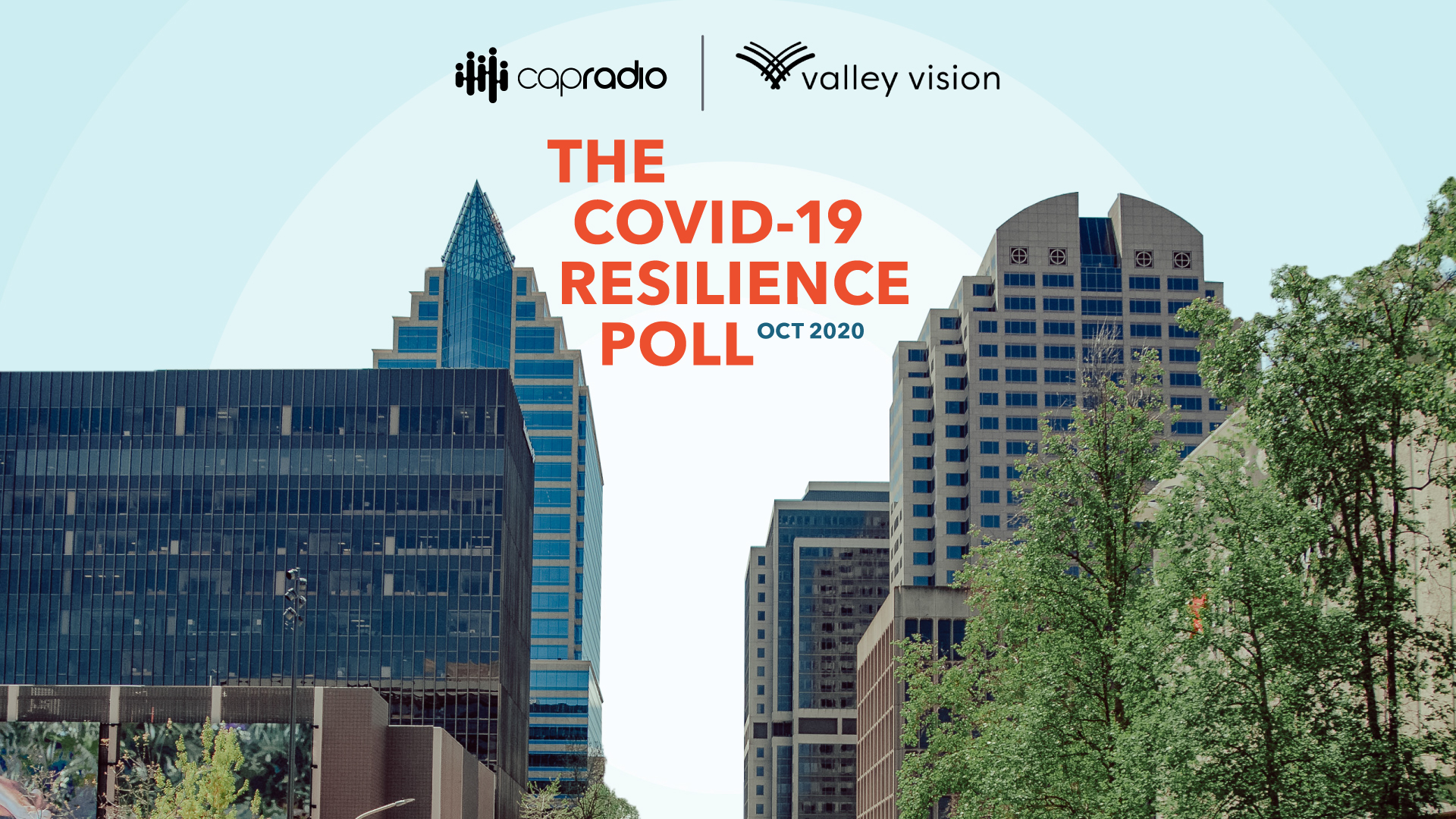
The COVID-19 Resilience Poll series tracks the experiences, perceptions, concerns, and hopes of people in the Capital region, via three polls conducted through the first twelve months of the COVID-19 pandemic – including health impacts and fears, the experiences of the varying public orders and guidance, and the economic consequences of the pandemic. This poll, the second in our series, was in the field September 4-18, 2020, and is demographically representative of the Capital region, encompassing eight counties, including Sacramento, Yolo, El Dorado, Placer, Yuba, Sutter, Solano and San Joaquin counties, and has a margin of error of plus or minus three percent.
This poll paints a picture of the many ways that COVID-19 is impacting our region. This is the second in a series of polls fielded by Valley Vision and CapRadio, in partnership with the Institute for Social Research at Sac State. These surveys are helping us understand and navigate the challenges ahead as we aim to not just understand the impacts and recover from the setbacks of COVID-19, but also reimagine a more equitable, sustainable, and just future. You can also access CapRadio’s coverage of the poll at www.capradio.org.
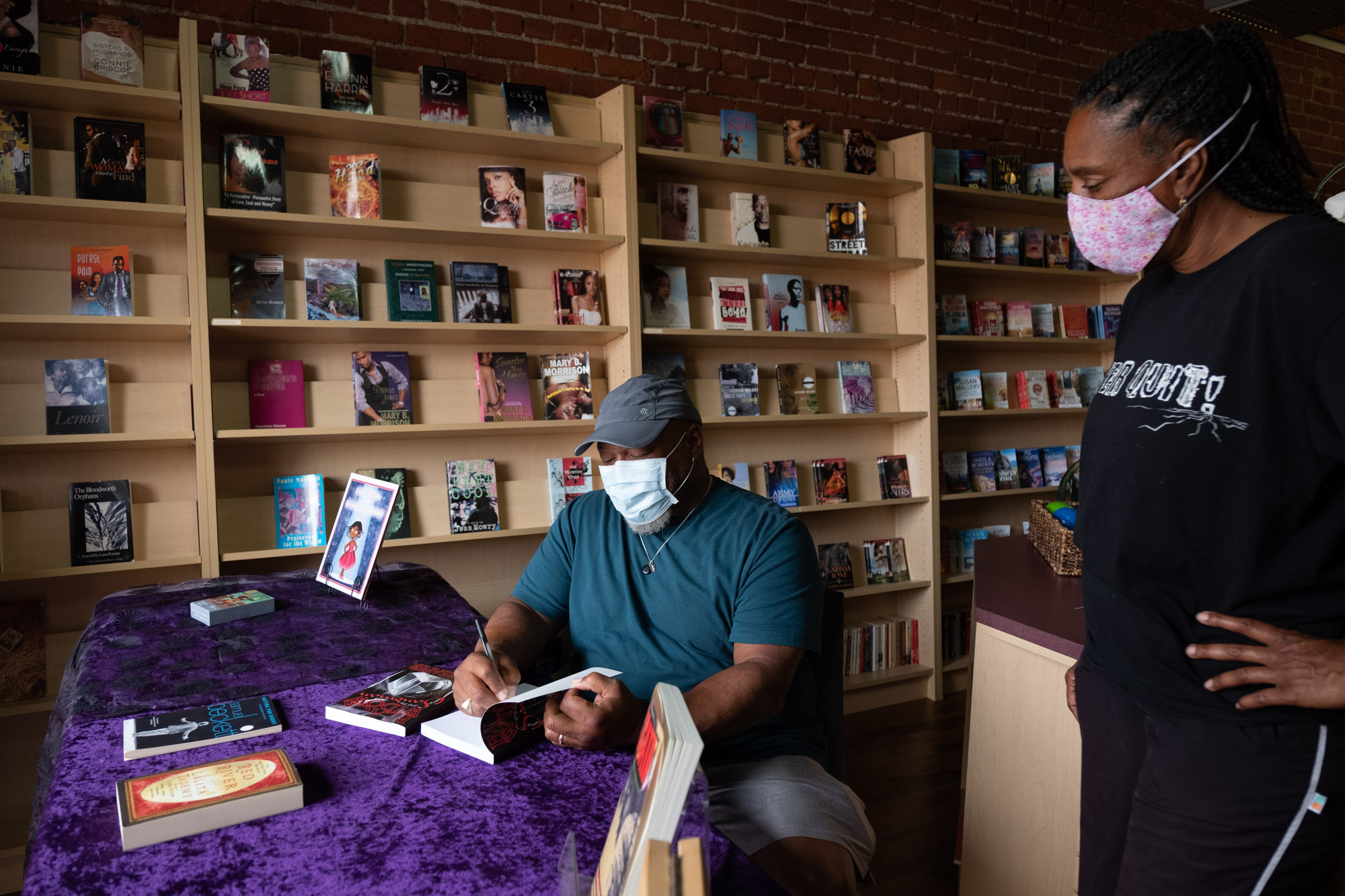
Levels of concern continue to reflect disparities in our communities. Respondents who are Black, Hispanic, in a lower income bracket, or younger, reported higher levels of concern across most measures.
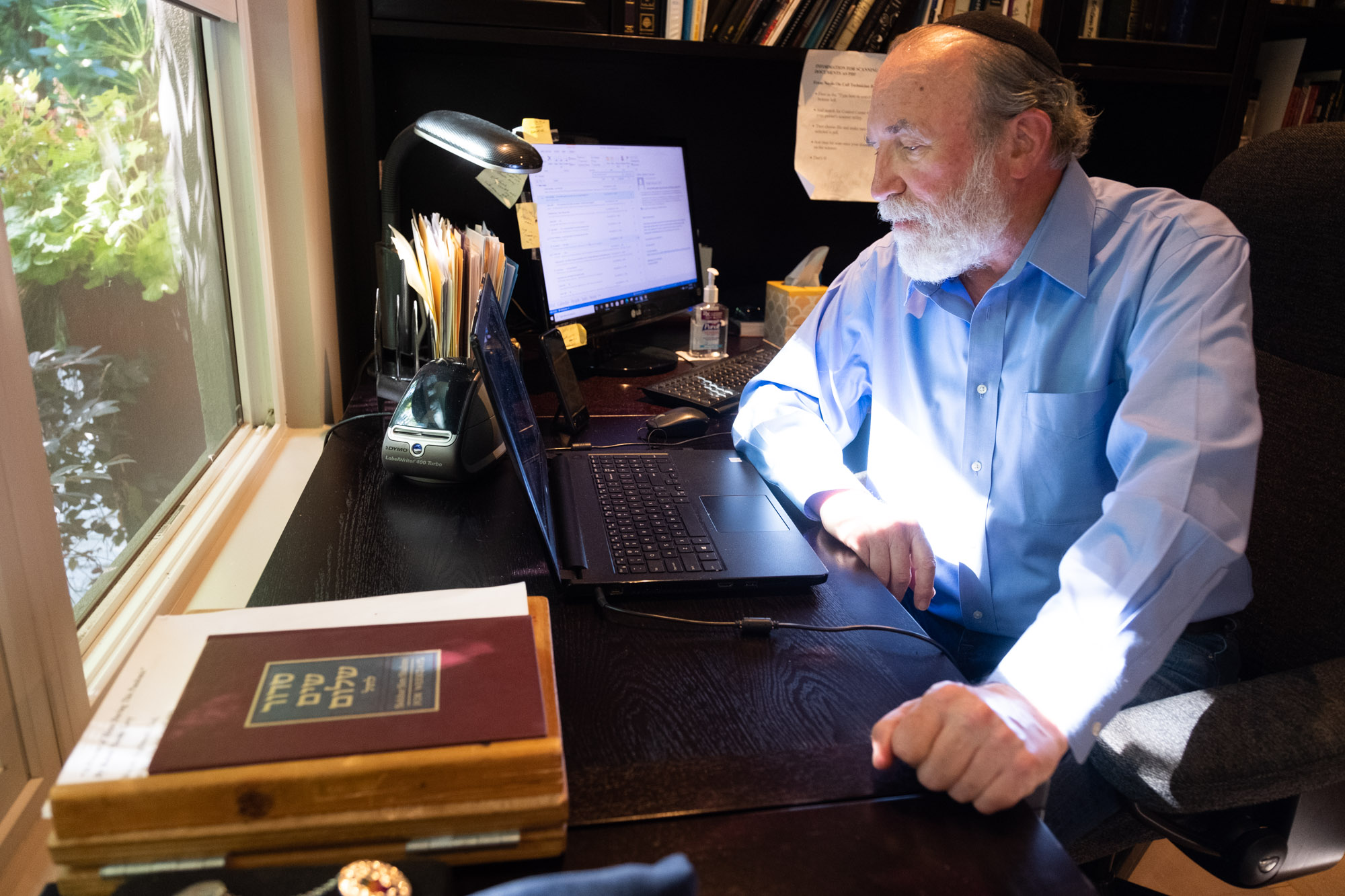
As many as 63% of respondents reported feeling depressed at least once in the last seven days, and 82% of respondents reported feeling anxious at least once in the last seven days.
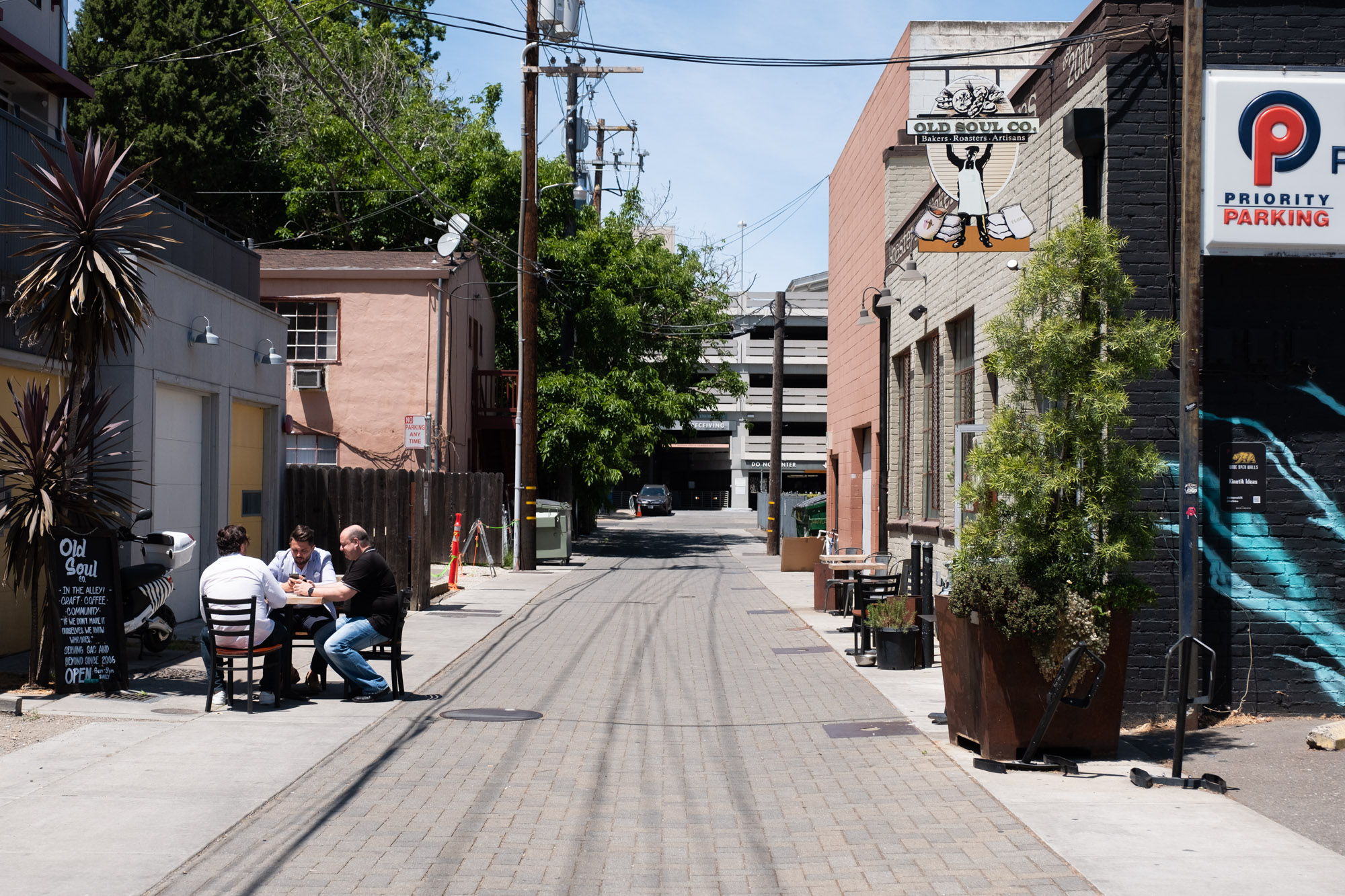
17% of respondents reported that they are currently unemployed, while only 8% reported being unemployed in January.
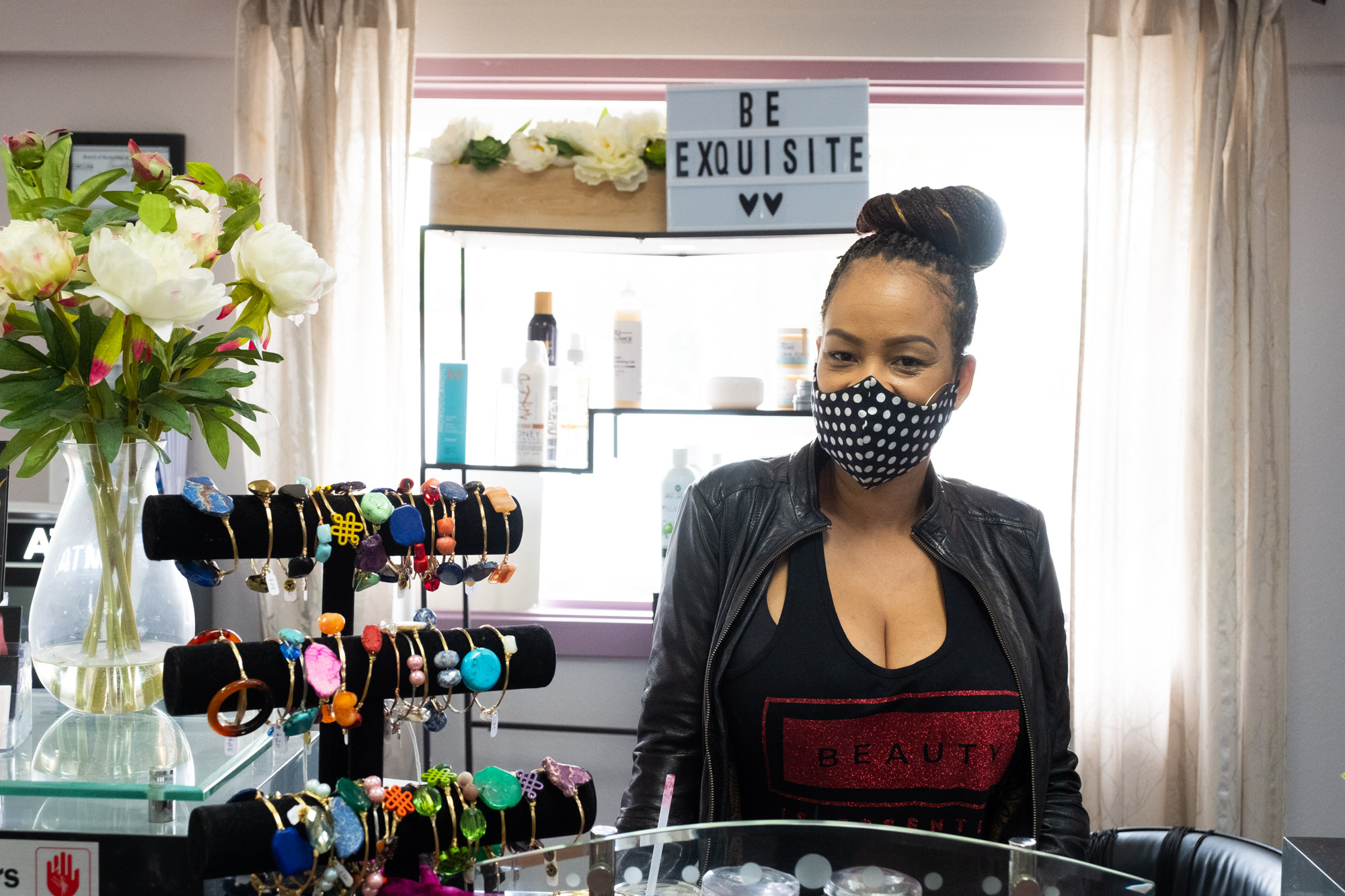
Men and women are experiencing the impacts of having their children doing schooling remotely very differently — nearly 40% of women respondents describe it as “very” challenging, as compared to only 13% of men.
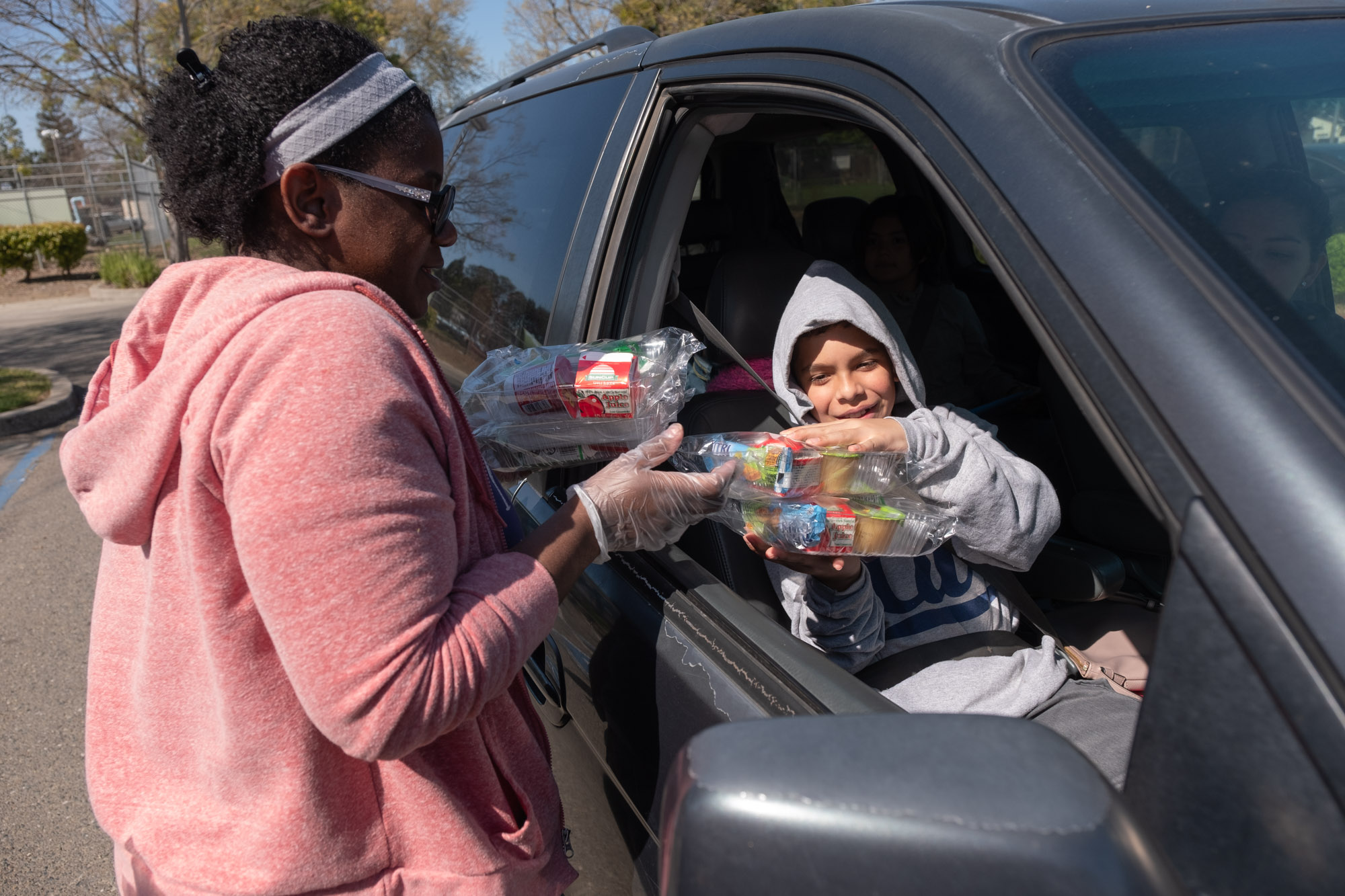
48-57% of those with children think that schools at all levels should open in-person; only 26-28% of those without children share the same view.
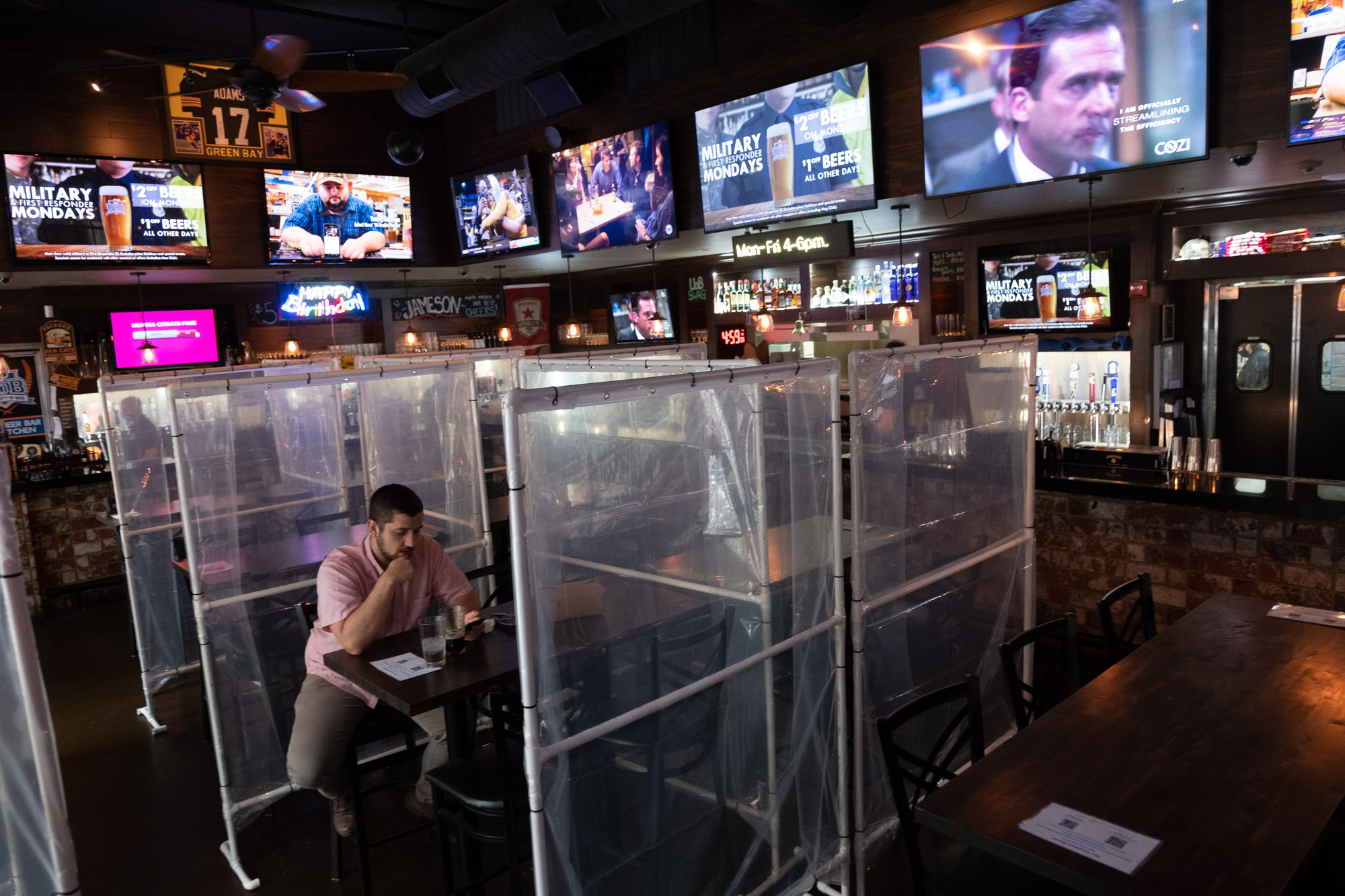
Republicans are more likely than Democrats to support a return to in-person schooling either as usual or with minor adjustments to accommodate COVID-19.
Photo credit: Andrew Nixon/CapRadio
